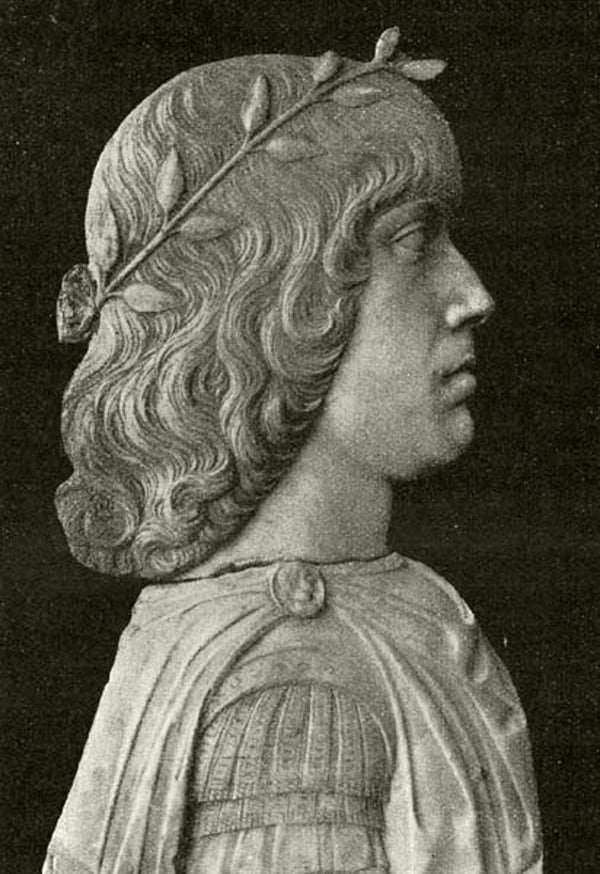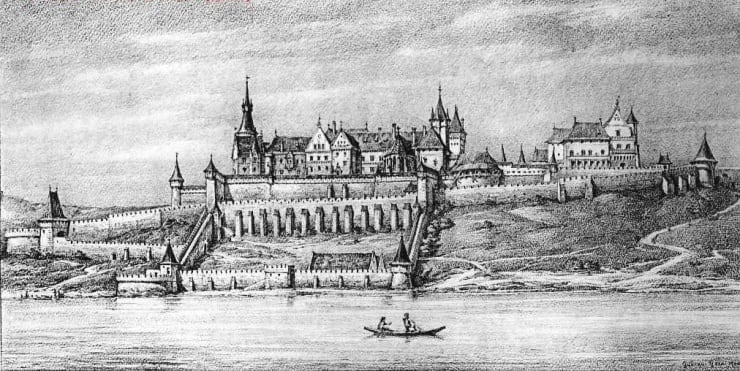Super koplisme jeho denár v ruličce na horách 
24.1. 1458 - Matthias Corvinus became King of Hungary
Categories: Personalities , Calendar
He was small and supposedly not even very handsome. But he excelled in physical strength and determination, and as a boy he received an excellent education. Matthias Corvinus' ancient origins annoyed many members of the magnate families, yet on 24 January 1458 he became King of Hungary and later of Bohemia. He owned the second largest collection of books.
Korvín was known above all as a lover of culture. He "brought" the Renaissance to the Hungarian kingdom, which first spread through the Italian city states. However, it was under Corvinus that it also appeared in what is now Hungary, at a time when much of Eastern Europe was threatened by a rising superpower - the Ottoman Empire.
Corvinus is considered the most capable ruler in Hungarian history. His successors, however, could not follow him. He died in Vienna on 6 April 1490 and was succeeded by Vladimir Jagiellonian. He was elected by the Estates, who did not respect the last will of Matthias Corvinus to be replaced by his illegitimate son John.
The Hungarian Renaissance ended only a few decades after Corvinus' death, although it generally lasted until the seventeenth century. For a little while at least, this made the Hungarian kingdom the most enlightened and culturally rich "state" in Europe, that is, outside the Italian peninsula. "Corvinus showed an interest in the Italian Renaissance from the beginning and was the first monarch to bring the mouseto the empire outside the Italian peninsula," say many encyclopaedias.
In 1476, he even married Queen Beatrix of Naples, who went on to become Queen of Hungary, Croatia and Bohemia. She was the daughter of King Ferdinand I of Aragon and King Ferrante of Naples, so she received an excellent education, which was not common at the time.
Corvinus was based in the town of Buda, which is now part of Budapest. When he was not on a military campaign, he stayed at Buda Castle, which was the seat of the Hungarian kings. He had it rebuilt in anything but Italian Renaissance style. He invited artists from Italy to the city. He greatly admired the Italian philosopher and physician known as Marsilio Ficino, who translated all Plato's works from Greek into Latin.
The city of Buda became a centre of Renaissance humanism and philosophy based on the wisdom of men who sought to revive classical Latin, to promote the uniqueness of the individual and to create a synthesis between pagan and Christian cultures. Matthias Corvinus loved books and owned one of the largest libraries in his time. The Vatican had the largest ever.
He imprisoned the government of Dracula
The King of Hungary simply loved to collect books and had many ancient Greek and Roman classics in his library. But only a little over 200 codices have survived. Nevertheless, the Bibliotheca Corviniana has been inscribed on the UNESCO Intangible Heritage List. It contained works written specifically for King Matthias Corvinus and copies of the most important documents known at the time. The collection included works on philosophy, theology, history, law, literature, geography, natural sciences, medicine and architecture.
"He aspired to a collection of books that would enable knowledge of the ancient and modern world. He systematically searched for curiosities and exchanged books with Lorenzo de' Medici. He was a regular customer of the Bisticci bookshop in Florence and maintained relationships with other collectors. Up to thirty craftsmen are said to have worked on the library. At the time of the king's death, it could have had up to two thousand volumes," said Pal Engel of the Hungarian Academy of Sciences. The library occupied two halls. One containing works by Greek authors, the other by Latin writers.
But Matthias Corvinus could not find and negotiate an adequate successor to the throne. And it was very important because of the aforementioned Ottoman Empire. Not even the Wallachian prince Vlad Dracula, who came to Korvín asking for help, could cope with its military attacks. When they first met, the Hungarian king had him imprisoned.
Korvín's reign also had many downsides. For example, he burdened the people with high taxes, which provoked an uprising.


Sources: www.medium.com, www.history.info
The article is included in categories:
Post
Zase pěkný článek, děkuji. 
Pěkné čtení, díky. 
Syn Jána Huňadyho Sedmohradsky šľachtic, založil tuším prvú univerzitu Istropolitana.Matejov nemanželsky syn Ján dostal darom Liptovskú stolicu časť severnej Moravy a Poľska rod vymrel po meči.Huňady Erb havran na konáry a v zobáku zlatý prsteň. To len tak na doplnenie.Pekná spomienka aj článok Viki .
Ospravedlň ten nik 







